Setting the Reel Deal: Unraveling the Art of Fly Fishing
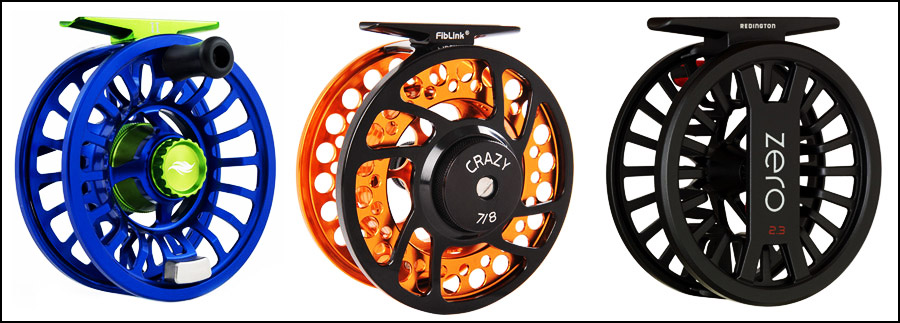
There’s something about the gentle ‘plop’ of a well-placed fly, the intoxicating sense of peace on the water, and the heart-racing thrill of a bite that makes fly fishing one of the most rewarding forms of angling. Central to this experience is a humble yet vital piece of equipment – the fly fishing reel.
In the simplest terms, a fly fishing reel is a spool mounted on an axle that is used for both deploying and retrieving the fishing line. Its primary job is to hold the fishing line, but it also provides the necessary resistance (known as drag) when a fish decides to take the bait and run, helping to prevent the line from snapping and ultimately aiding in the landing of the fish. A well-selected reel can mean the difference between a triumphant catch or watching your prize swim away.
But what transforms a simple tool into ‘the best’ fly fishing reel? Here, several factors come into play, such as the reel’s material, weight, drag system, retrieval rate, spool capacity, and ease of use. Additionally, the kind of fishing – freshwater or saltwater – as well as the target species and your own personal preferences also dictate what constitutes the ‘best’ reel for your fly fishing needs.
Having spent countless hours, rod in hand, and having experienced the joy of many successful catches and, admittedly, the frustration of losing a fish or two, I have come to understand the crucial role a good reel plays. I am a professional fishing guide with over two decades of experience under my belt. Throughout the years, I’ve tried and tested a multitude of reels and can attest to the fact that the right reel does make a difference. In this article, I’ll use my personal and professional experience to guide you through the process of choosing the best fly fishing reel for your angling adventures.
Reel Wisdom: Essential Factors for Choosing Your Fly Fishing Reel
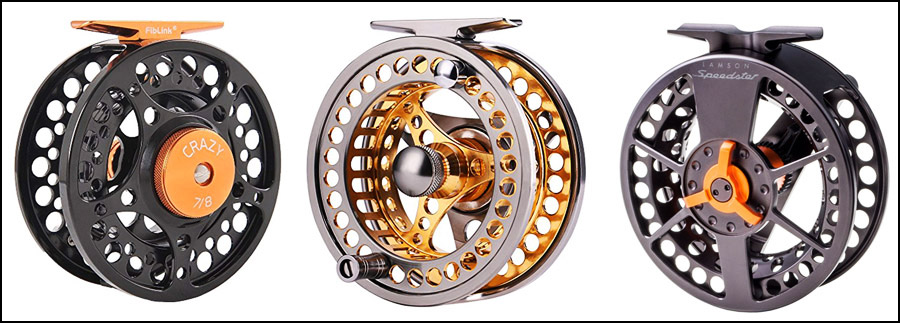
When you’re on the hunt for the perfect fly fishing reel, a number of factors come into play, each of which can significantly impact your fishing experience. The key is to balance these aspects to find the reel that best suits your specific needs.
Material and Weight
Fly fishing reels are predominantly made from two types of materials: aluminum and polymer. Aluminum reels, often the choice of professionals, are known for their durability, strength, and heat resistance. They are usually machined or die-cast, with machined reels offering superior quality due to their precise construction. Polymer reels, on the other hand, are lighter and more affordable, but may not provide the same level of durability.
The weight of your reel should complement your rod for a well-balanced setup. Too heavy, and it could tire you out quickly. Too light, and it might not balance the rod correctly, making casting more challenging.
Drag System
The drag system is critical for maintaining control when a fish takes the bait. It’s the mechanism that applies resistance to the turning spool and prevents the line from being stripped off too quickly. There are primarily two types: click and pawl, and disc drag. Click and pawl is a traditional system providing less adjustability and is ideal for smaller fish. The disc drag system, on the other hand, offers greater resistance and is adjustable, making it perfect for larger, stronger fish.
Retrieval System and Spool Capacity
The retrieval system relates to how the line is wound back onto the reel. You have single action (one revolution of the handle equals one revolution of the spool), multiplier (more than one spool revolution per handle turn), and automatic (spring-loaded) systems. Single action is the most common, offering simplicity and reliability.
Spool capacity is crucial too, especially when targeting species known for long runs. Ensure your reel has enough capacity to hold the necessary amount of backing and fly line for the type of fishing you’re doing.
Ease of Use
A reel should be user-friendly, allowing quick and easy line changes, and adjustments to the drag system, and ideally, should be ambidextrous.
Type of Fishing
The environment plays a significant role in reel selection. Saltwater reels require corrosion resistance, while freshwater reels might not. Also, the species you’re targeting matters. For instance, if you’re fishing for trout in a small stream, a lightweight reel with a simple click-and-pawl system would suffice. Conversely, chasing saltwater species like bonefish or tarpon requires a durable, corrosion-resistant reel with a strong, adjustable drag system.
🚩Remember, the ‘best’ reel isn’t universally defined—it’s the one that fits your needs, preferences, and the specific context of your fly fishing pursuit. Understanding these key features brings you one step closer to finding your ideal reel.
Reeling in Knowledge: A Deep Dive into Fly Fishing Reel Types
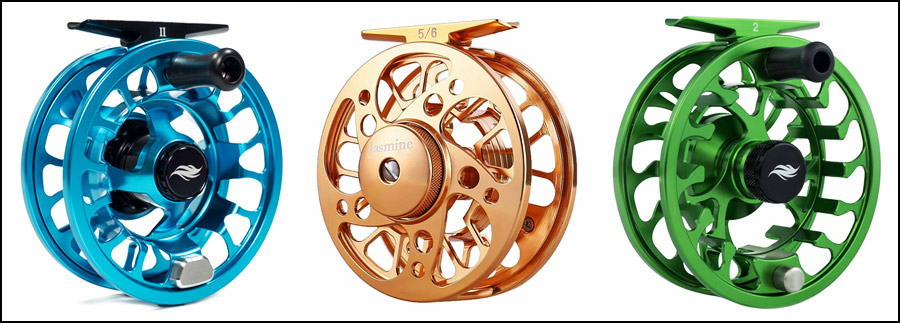
While on the surface, all fly fishing reels might appear similar, once you dive a little deeper, you realize there are distinct types – each with its own unique features, benefits, and downsides. The three primary types are single-action, automatic, and multiplier reels.
Single Action Reels
In single-action reels, a single turn of the handle equates to one full revolution of the spool. This is the most traditional and most commonly used type of fly fishing reel. It’s simple, reliable, and less likely to malfunction due to fewer moving parts. These reels are also typically lighter due to their simplicity.
However, the retrieval rate can be slower because you have to crank more to retrieve the same amount of line as the other types. Single-action reels are ideal for most trout fishing scenarios where rapid line retrieval is not a significant factor.
Automatic Reels
Automatic reels, powered by a spring mechanism, retrieve the line with a single pull of a trigger, eliminating the need for manual cranking. They offer speedy line retrieval and can be convenient when your other hand is occupied.
However, they come with their own set of drawbacks. They tend to be heavier due to the additional internal mechanisms and can be less durable due to the potential for spring failures. The spring mechanism also leaves less room for line capacity. Automatic reels are typically used for small stream fishing, where quick line retrieval is beneficial.
Multiplier Reels
Multiplier reels have a gear system that retrieves line faster than single action reels – typically at a ratio of 2:1 or 3:1. This means for each turn of the handle, the spool rotates two or three times, offering a faster retrieval rate.
While this sounds appealing, especially for large water bodies or when targeting species known for long runs, it comes with a trade-off. The gearing makes these reels heavier and more complex, potentially leading to more mechanical issues. Furthermore, the additional torque from the faster retrieval can make fighting fish more challenging.
Choosing the right type of reel largely depends on your fishing scenario, targeted species, and personal preferences. For general trout fishing in rivers and streams, single-action reels often prove the most efficient. When quick line retrieval is crucial, you might consider an automatic reel. For situations where you need to reel in large amounts of line quickly, a multiplier reel might be your best bet. Understanding these different types of reels will empower you to choose the best fit for your angling needs.
Best Saltwater Fly Fishing Reels Buying Guide & Review
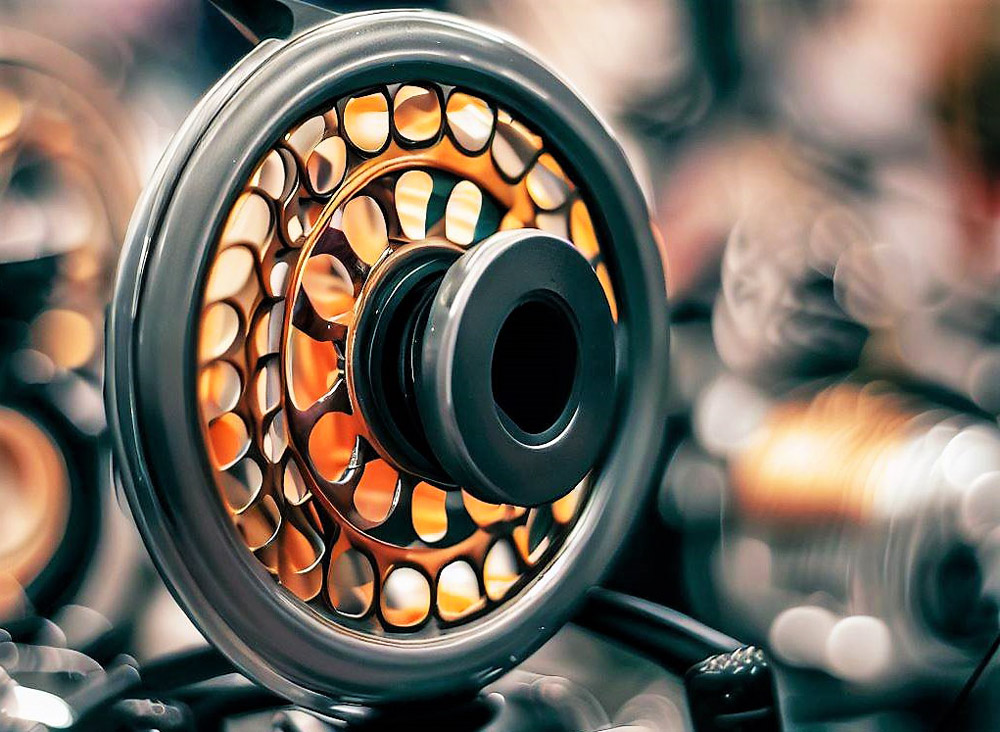
Fly reels are one of the very first that appeared in fishing. Their design is quite simple but nevertheless very effective. Many fishermen start with this type of reel because they are the easiest to use and not very expensive. But the choice of such a reel must be taken seriously. In this article, I’ll tell you how to choose a good fly reel and how high-quality reels differ from a cheap piece of plastic. I’ll also review some of the best fishing reels so you can immediately choose something for yourself. So let’s go!
Comparison Chart of the Best Fly Reels:
In my opinion, here are the best Top-3 fly fishing reels:
Many reels are good in one or two directions at most. But we have selected for you, those who can boast amazing characteristics in any direction.
1# Redington Behemoth Fly Reel – Best Fly Reel
Let’s start right away with the best fishing reels from this list. The Behemoth got the name for its durability, super strength, and cast construction, which makes this tool very powerful. Designs with a choice of several colors are available but this is not the main thing. The main design feature is that it increases the backing space, and the dimensions speed up to retrieve and reduce line memory. Depending on the rod, this line has several types of reels with different sizes, weights, footage, etc.
But neither the design nor the strength and durability of the structure can be compared with the drag system of this reel. Redington speaks quite loudly about the Behemoth drag system, and it’s really justified. It uses a powerful drag system made of carbon fiber, which can fight both small and large fish.
The Redington Behemoth is an excellent choice for those seeking power and performance without breaking the bank. Key Specifications:
- Material: Die-cast Aluminum
- Drag System: Adjustable Carbon Fiber Drag
- Weight Range: 4.5 oz to 11.4 oz based on model
- Line Capacity: WF4 100 yards to WF12 250 yards, depending on model
The Behemoth features one of the most potent drag systems in its class, courtesy of its adjustable carbon fiber drag. Its unique, die-cast construction provides strength and durability, and the deep V spool offers excellent backing capacity.
While the reel is robust, its die-cast construction doesn’t offer the same precision as machined alternatives. Also, the heavier models might be too weighty for lighter rods.
In my personal experience, the Redington Behemoth has been a reliable companion on saltwater fishing expeditions. It is strong drag system and generous line capacity is advantageous when pursuing species known for their long, powerful runs, like bonefish and tarpon.
Obviously, this is a high-quality tool, and few reels can compete with its drag system. You can take this reel to the open ocean, to a mountain lake, or a river – this reel will work equally well everywhere. The main disadvantage is the weight. Considering that fishermen load their backpacks with heavy equipment so often, this reel will add an extra couple hundred pounds to your backpack. But given the effectiveness of the Behemoth, you can turn a blind eye to its weight.
2# Orvis Hydros SL Fly Reel
Orvis has long been synonymous with quality fishing gear, and the Hydros SL fly reel continues this tradition. Key Specifications:
- Material: Aluminum
- Drag System: Sealed Carbon Drag
- Weight Range: 5.5 oz to 8.4 oz based on model
- Line Capacity: WF5 100 yards to WF11 250 yards, depending on model
The Hydros SL stands out for its precision and power, featuring a super large arbor for quick retrieval rates and a sealed carbon drag that offers smooth, consistent resistance. The drag adjustment knob is ergonomically designed for ease of use, and the reel’s machined aluminum construction ensures durability.
The main downside is its weight—it is slightly heavier than some competitors, which might impact rod balance.
As a fishing professional, I’ve used the Hydros SL on multiple fishing trips and can vouch for its performance. Its quick retrieval rate and reliable drag have come in handy when fishing for larger trout and smallmouth bass.
3# HARDY Ultralite MTX-S Fly Fishing Reel
The HARDY Ultralite MTX-S Fly Fishing Reel is an innovative and meticulously designed piece of angling equipment that embodies a unique fusion of traditional design and cutting-edge technology. It’s a reel that delivers high performance and exceptional durability.
MTX Carbon Fiber/Aluminum Main Frame: The MTX-S is HARDY’s first fly fishing reel to feature a hybrid carbon fiber/aluminum main frame. This combination provides the rigidity and strength of aluminum with the lightweight properties of carbon fiber.
The reel utilizes a disc drag system, which offers precise, smooth, and reliable drag pressure throughout the entire drag range. This can be very important when fighting strong and fast-running fish.
The reel has a large arbor design, which allows for quick line retrieval and less line memory, thus providing a smooth, efficient fishing experience.
The MTX-S features a color-coded drag system that gives a visual reference to the drag setting, allowing for quick adjustments when in action.
The reel’s drag system is fully sealed, offering protection from water, salt, and grit, thereby enhancing the product’s longevity.
The captured screw design in the spool release ensures you won’t lose parts when changing spools.
The HARDY Ultralite MTX-S Fly Fishing Reel is available in a variety of sizes, suitable for different fishing conditions and species. Each size has specific line capacity, weight, and diameter specifications.
4# Piscifun Sword Fly Fishing Reel – Best Saltwater
Despite such an abundance of reels for freshwater, many fishermen, including myself, fish in saltwater waters. So, in the second place, I put this reel. Piscifun offers you 4 sizes of reels – from 5/6 to 9/10. The reel design stays light but has a large line capacity. Although this reel is sturdy and made of forged aluminum, the weight won’t bother you too much.
The drag system in this reel maybe isn’t the sharpest tool in the shed but it copes well with its work. Stainless steel bearings and washers are installed here. The manufacturer says that they are smooth like smeared with butter. But some users, and I personally noticed several times that the drag is a bit jerky but overall it works well and without difficulties. Piscifun is pretty well with the design of their reels. They offer you several colors – from classical black to girlish pink. Basic-look reels have great personalization options.
This may be not the coolest reel on the market but it does wonderful work and many users like it. Of course, you can find reels with a better and smoother drag system, but the Piscifun Sword is made of high-quality aluminum, which will last a long time, and this is a huge plus.
5# M MAXIMUMCATCH Maxcatch ECO Fly Reel Large Arbor – Best Budget
I know there are situations when you urgently need a good fishing reel, but there’s not much money for an expensive and high-quality one. Or you just want to save a budget and get something cheaper and so that it wouldn’t be a piece of plastic. For such a case, there is M Maxcatch.
Many mistakenly believe that to get a good reel you need to spend a fortune. But it’s not always the case. M Maxcatch reel is a prime example of such an exception. This line offers you three sizes of reels – from 3/4 to 7/8. And as many color options. Don’t expect to see low-quality materials at such a low price. Aluminum and stainless steel in this reel are made at a high level. This reel also has a big arbor and die-casting retrieval, so you can easily retrieve the line. Bearings work in one direction and are designed for use with the left hand. But it’s easy to switch back and forward.
If you are a beginner and are looking for the first reel for testing or you have a limited budget, then this line will surprise you. Maybe there are not such huge drag capabilities here, but this doesn’t prevent this reel from remaining one of the highest quality on the market. Aluminum makes this reel resistant to any external influences and corrosive effects of water. It’ll definitely work with you for a long time.
6# Redington RISE Fly Fishing Reel – Best Under $200
The Redington is generally distinguished by the quality of its fishing reels. Therefore, I can’t add another model to this list. Moreover, it costs less than $200. It has a big U-shaped arbor, bright and durable. Many users complained about the heavyweight of previous fishing reels. Redington took this into account and this model has a more open design and less weight. The reel uses a carbon fiber drag system. This is good because such a system is smooth and fast. The line has the same design but 4 different colors: silver, black, amber, and olive. It doesn’t matter if you are left-handed or right-handed – the manufacturer will provide you with a model for any hand. The handle is good in that it’s comfortable for hands and doesn’t slip during use. Also, Rise III has an increased drag handle for easier and more convenient use.
As always, Redington pleases us with another line of beautiful and reliable reels with rich functionality. I would put 5 stars for this reel, if not the drawback with the brake adjustment. But its drag system is simply excellent. For that price, this is a pretty good choice.
7# M MAXIMUMCATCH Maxcatch Tino Fly Fishing Reel – Best For Trout
When I needed a good reel for trout fishing, I decided to turn to M MAXIMUMCATCH and it was a very successful decision in choosing a reel. These guys justifiably have so many positive reviews. Although the Tino line is slightly more expensive than the ECO Line from the Maxcatch, compared to other manufacturers, it’s still not so expensive. The most popular weight is 5/6, but 7/8 is also available, no one forbids you to take it. It has a large aluminum design and provides quick retrieval.
The drag system here is installed with a Teflon disk, and the manufacturer claims that “it puts serious pressure on the fish“. I prefer carbon systems but, fortunately, discs made of stainless steel and have a one-way clutch system. This allows you to adjust the drag very quickly. You can choose a reel with a fishing fly line and backing included. So, after the purchase, you do not have to worry about buying a fishing line.
If you’re new or just don’t want to spend a lot of money on an additional reel, then you should definitely take a look at this. Although it’s not so durable, and the pre-spooled line isn’t so strong, this reel does its job well and has excellent performance.
8# Redington Zero Fly Reel – Best Click and Pawl Fly Reel
Last but not least, another reel from the Redington. The manufacturer called this line “zero” because of the ultralight weight of the reels. This is achieved due to the large aluminum structure and large transport gaps. The line has four colors: avocado, black, sand, and teal. Also, you can choose two sizes – 2/3 or 4/5.
The design feature of the reels is that they are made of die-cast aluminum under pressure, which can’t be achieved by CNC-machining. The company has installed a new drag system here – a click-drag system with springs. Besides the name, it’s no different from other systems, it still works smoothly and well. Each reel is equipped with double handles that sit comfortably in your hands for several hours and don’t cause discomfort. I’d like to note a nice feature that the reel comes in a nylon case.
It an affordable and lightweight for any fishing purpose. Yes, the drag system is a bit noisy, but other than that, the reels have no more flaws. The click drag system is very convenient and gives good results.
Tailoring Your Tackle: How to Choose the Ideal Fly Fishing Reel for Any Situation
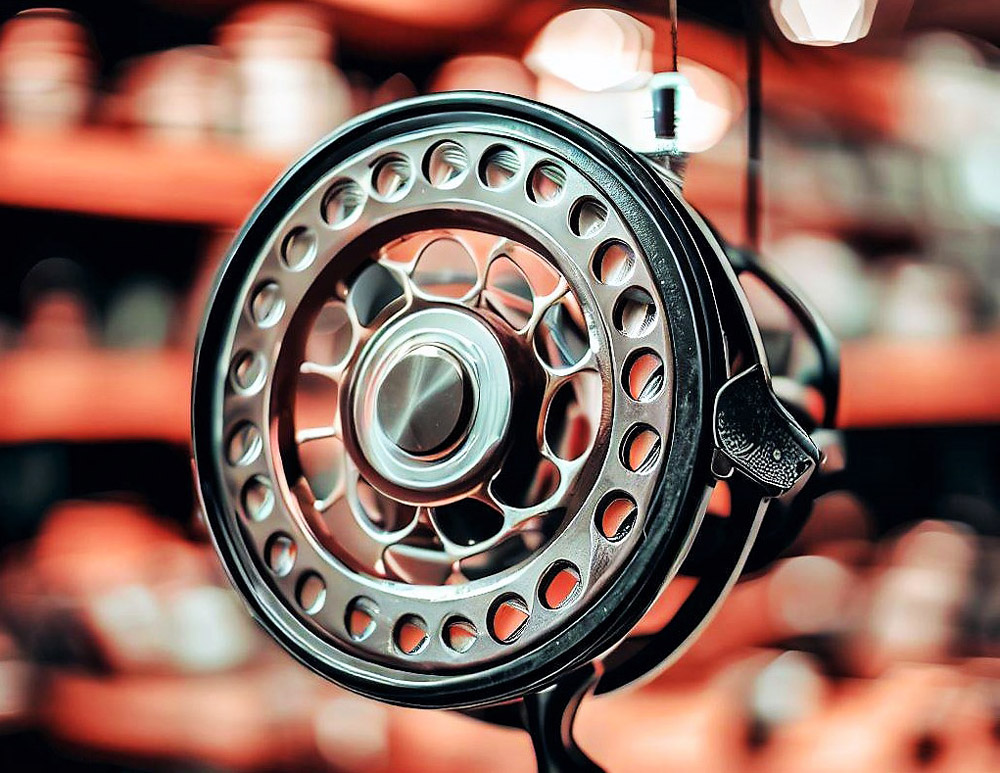
Finding the right fly fishing reel isn’t a one-size-fits-all situation. Various factors come into play, including the species you’re targeting, the environment you’re fishing in, your skill level, and of course, your budget. Here’s how each of these elements influences your choice.
Target Fish Species
Different fish require different tactics, and by extension, different gear. For smaller species or those that don’t make long runs, like trout in a small stream, a lightweight reel with a simple click and pawl drag system can suffice.
On the other hand, larger species known for their fight, like salmon, steelhead, or bonefish, require a sturdy reel with a strong, adjustable drag system. The reel should have ample line and backing capacity to handle long runs.
Fishing Environment
The environment you’re fishing in also dictates your reel choice. For saltwater fishing, choose a reel with corrosion resistance and a sealed drag system. This is because saltwater can be destructive to gear not designed for such conditions.
In contrast, most freshwater environments won’t require such stringent durability measures, and you can choose from a wider variety of reels. However, certain demanding freshwater situations, like big river fishing or targeting large species, might necessitate a reel with features similar to a saltwater reel.
Angler’s Skill Level
Your experience and skill level as an angler matter too. Beginners might opt for a simple, easy-to-use reel to learn the ropes without becoming overwhelmed. A reel with a single action retrieval system and a simple drag system would be a good starting point.
Experienced anglers, however, may prefer reels with more advanced features, like a sturdy disc drag system, a large arbor for quick line retrieval, or interchangeable spools for versatility.
Budget
Your budget is a significant deciding factor. Fly fishing reels can range from affordable to very high-end. While you often get what you pay for in terms of quality and durability, it’s not necessary to spend a fortune to get a reliable reel.
Affordable reels are available that offer decent performance for beginners and even intermediate anglers. As you progress and your needs become more specific, you might consider investing in a higher-end reel.
🚩Remember, the “right” reel is subjective to each angler. It’s the one that suits your needs, makes you feel comfortable, and most importantly, helps you enjoy your time on the water. Taking the time to consider these factors will help you make an informed decision and enhance your fly fishing experience.
Reel TLC: How to Care for and Maintain Your Fly Fishing Reels
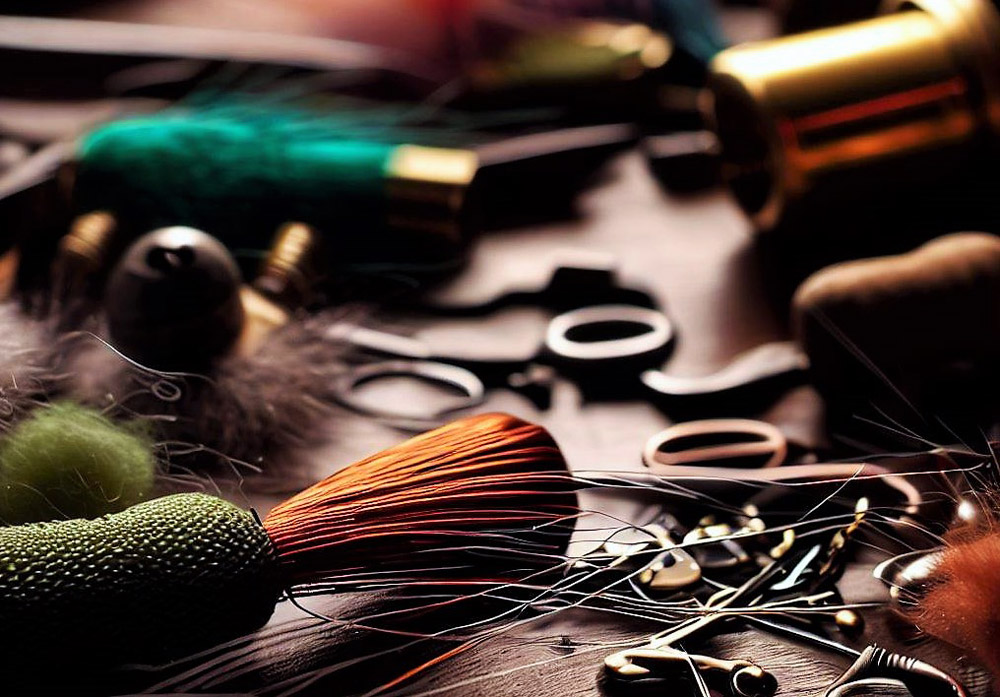
Just like any other piece of equipment, your fly fishing reel requires regular care and maintenance to ensure it performs optimally and lasts as long as possible. Here are some tips to keep your reel in peak condition.
Cleaning the Reel
After every fishing trip, especially in saltwater environments, it’s crucial to clean your reel. Rinse it gently with fresh, warm water to remove dirt, sand, and salt that could damage the reel over time. Use a soft toothbrush to reach into crevices and scrub away any stubborn grit or salt.
Every few fishing trips, or whenever you notice dirt buildup, disassemble the reel as per the manufacturer’s instructions and clean each part individually. Dry everything thoroughly before reassembly to prevent corrosion.
Storing the Reel
Proper storage is vital to extend your reel’s lifespan. Always store your reel in a dry, cool place away from direct sunlight. Sunlight can degrade the line and other materials over time. It’s a good idea to loosen the drag when storing the reel for extended periods to prevent compression of the drag washers, which could reduce their effectiveness.
Handling the Line
The line is a key component of your reel system. After each use, ensure it’s clean and dry before winding it back onto the reel. Dirt on the line can find its way into the reel, causing damage over time. Regularly inspect the line for signs of wear and replace it if needed.
Checking for Wear and Tear
Regularly inspect your reel for any signs of damage or wear. Pay particular attention to the handle, the drag system, and the spool. If you notice any cracks or rust, or if the reel isn’t functioning smoothly, it’s time for a repair or replacement of the affected part.
Lubrication
Proper lubrication helps to maintain the reel’s functionality. Apply a small amount of reel oil or grease to the reel’s moving parts as directed by the manufacturer. Avoid over-lubrication, as it can attract dirt and grit.
🚩Remember, a well-maintained fly fishing reel not only ensures a smooth fishing experience but also saves you from expensive repairs or replacements in the long run.
Sidestepping Snags: Avoiding Common Pitfalls in Selecting a Fly Fishing Reel
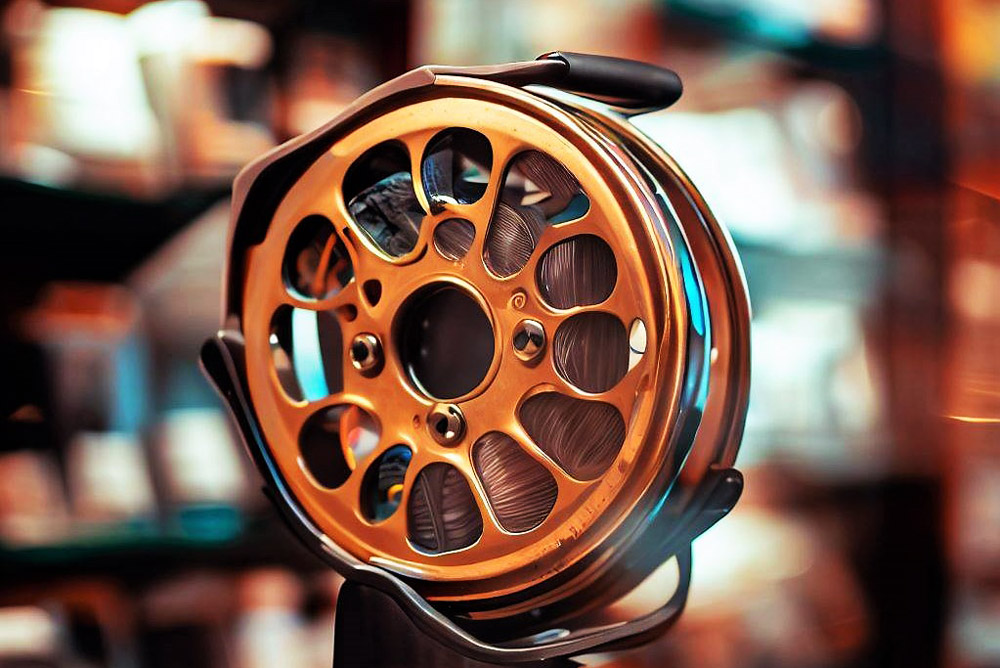
Selecting the right fly fishing reel can seem like a daunting task, especially with the multitude of options available. However, understanding common pitfalls can help you make an informed decision. Here are some common mistakes to avoid:
Overlooking Reel Balance
Many anglers focus on the reel’s features but overlook one crucial aspect: balance. A reel that’s too heavy or too light for your rod can make casting difficult and tire you out quickly. Aim for a well-balanced outfit where the reel complements the weight of your rod.
Ignoring Line Capacity
Choosing a reel with insufficient line and backing capacity can be a crucial mistake, especially when targeting fish known for long runs. A reel should have enough capacity for your line and an adequate amount of backing. Always check the manufacturer’s specifications for line capacity to ensure the reel will accommodate your needs.
Not Considering the Drag System
Different drag systems serve different purposes. For fishing smaller species or in calm waters, a simple click and pawl system may suffice. However, for larger fish and challenging conditions, you’ll need a robust disc drag system that can exert more stopping power on a running fish. Not considering the type and quality of the drag system can lead to disappointing performance on the water.
Choosing the Wrong Reel for the Environment
Using a reel not designed for the environment can quickly lead to its demise. Saltwater, for instance, requires a corrosion-resistant reel with a sealed drag system. A mistake would be to use a reel intended for freshwater in a saltwater environment, which can cause damage due to corrosion.
Focusing Solely on Price
While budget is a critical factor, it shouldn’t be the only consideration. Buying the cheapest reel can often lead to poor performance and durability, requiring replacements or repairs that can cost more in the long run. Conversely, buying the most expensive reel doesn’t necessarily guarantee it’s the best for your specific needs. The goal is to find a reel that offers the best balance of price, performance, and durability for your unique situation.
🚩By avoiding these common mistakes, you’ll be more likely to choose a reel that not only enhances your fishing experience but also provides the best value for your investment.
FAQ: Elevate Your Angling Game Today
Final Thoughts: Wrapping Up Our Journey into the World of Fly Fishing Reels
Many fishermen constantly argue about which part of the fishing rod is the most important. But anyway, the reel definitely plays a big role in getting a good catch. It must cope with its tasks as quickly and well as possible so that the fish don’t even have time to understand how it was caught. In this article, we figured out how to choose a fly reel for fishing and looked at a couple of the best representatives of such reels. When you decide to buy a fly reel, don’t forget about the tips you got here, so as not to make a mistake and not to take a cat in a bag. Also, be aware of the timely care and cleaning of your equipment. If this article was useful to you, then share it on social networks.
Choosing the right fly fishing reel is a nuanced process involving various factors, including the target species, your fishing environment, your skill level, and your budget. Keeping these considerations in mind, we’ve explored different reel types and reviewed some top-rated options on the market. The importance of maintaining your reel for longevity through regular cleaning, proper storage, handling of the line, and checking for wear and tear has also been underlined.
However, all these elements are just pieces of the bigger puzzle. The ultimate goal is to enhance your fly fishing experience. Every angler is different, and what works best for one person might not be ideal for another. Trial, error, and, most importantly, personal experience will guide you to the perfect fit.
Remember, fishing is as much about enjoying the journey as it is about the catch. As we navigate through the vast sea of fly fishing gear options, we shouldn’t lose sight of why we’re here in the first place: our love for the sport and the great outdoors.
Avoid common mistakes when selecting a reel, but don’t be afraid to make a few of your own. It’s all part of the learning curve. The knowledge gained from each choice, and each fishing trip, will continue to shape you as an angler.
🚩So here’s to the joy of casting a line, the thrill of the bite, and the satisfaction of a well-chosen fly fishing reel.
Tags: #best fly fishing reels / #best fly fishing reels for the money / #best fly fishing reels for trout / #best saltwater fly fishing reels / #best fly fishing rods and reels /#what are the best fly fishing reels

I live in Tenerife (Canary Islands) for the last 10+ years and share my daily fishing experiences on my website. Many years of personal experience as a fisherman and the vast experience of my friends allow me to write professionally on any fishing topics (from choosing a flashlight and equipment to deep-sea fishing).
All of my advice is based on practical real-world experience and will be useful to both novice anglers and professionals. Read more about the author.
Affiliate Disclosure: FishReeler.org sometimes gets paid for listings, through sponsors or affiliate programs like Amazon, Ebay, Cabelas, Bass Pro Shop, Shimano, Daiwa, Rapala, Renn, Okuma, KastKing, etс. Clicking a link helps keep FishReeler.org free, at no extra cost to you!
About the author: Each article is verified by the fishing expert Sergio Smirnoff. The articles are written by professional and amateur fishermen with 20+ years of fishing experience.
Note: The views and opinions expressed in this article are those of the authors and do not necessarily reflect the official policy or position of any agency. The articles are for informational purposes only, share your opinions in the comments and join the fishing discussions, let's share our fishing experiences together!

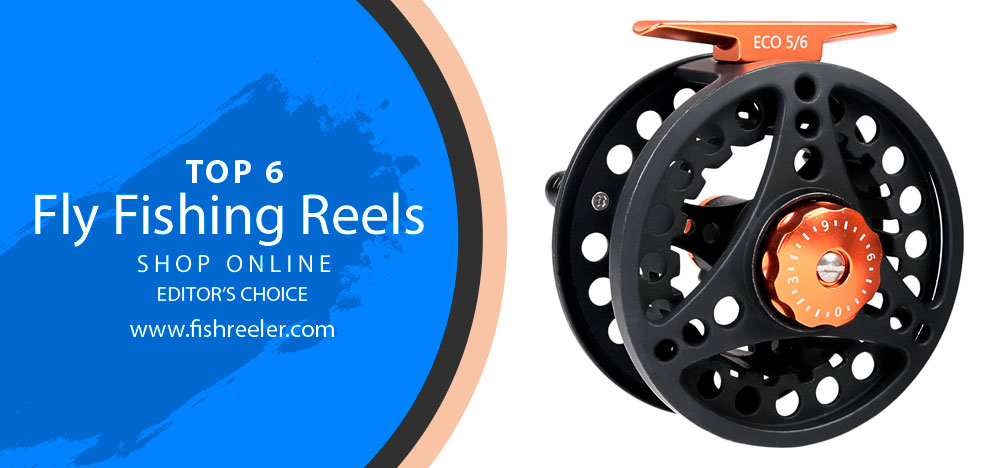
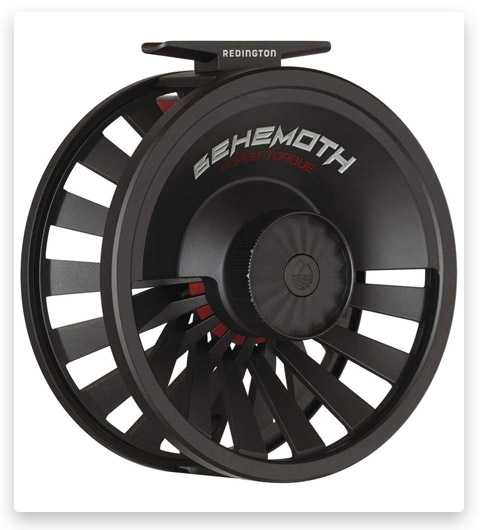
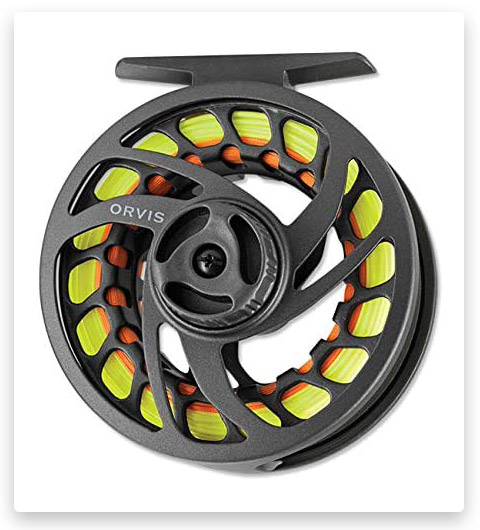
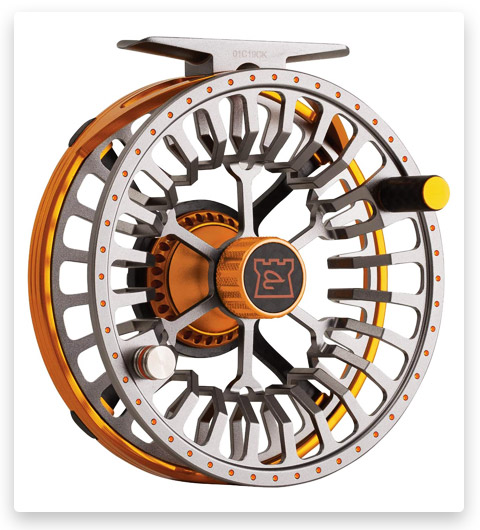
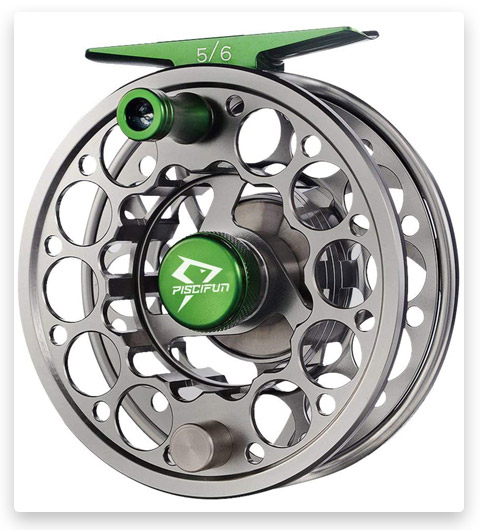
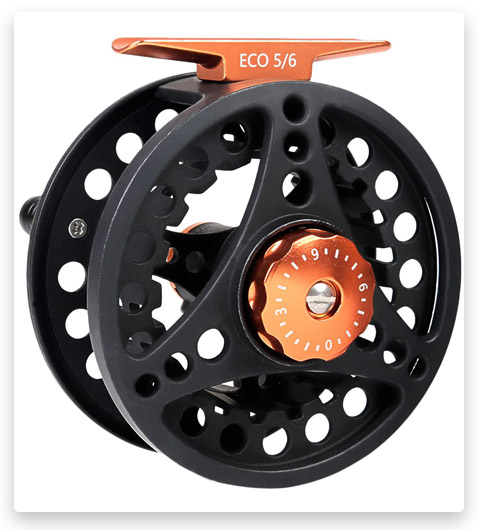
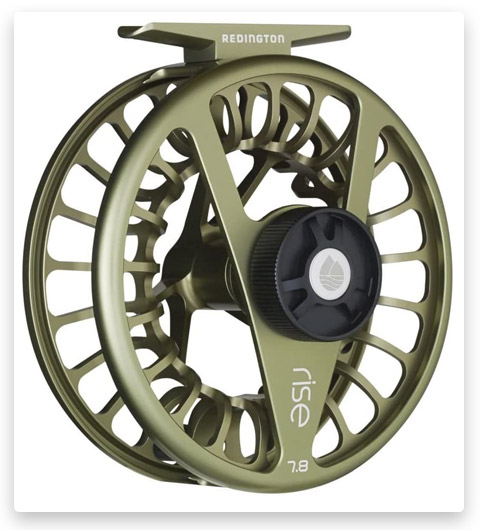
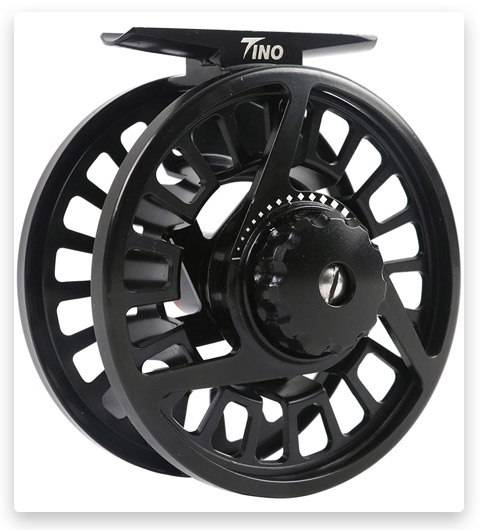
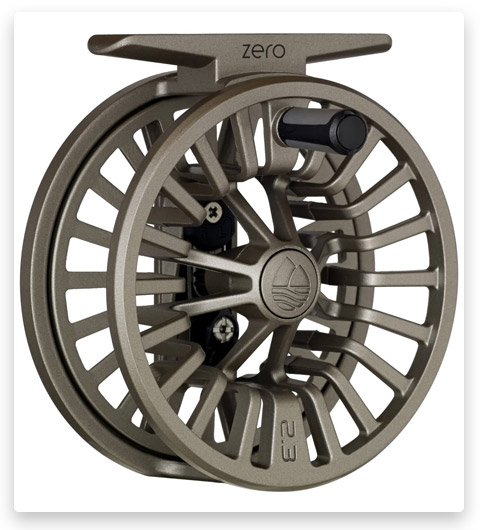
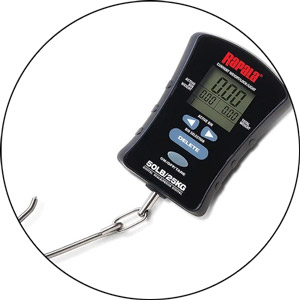
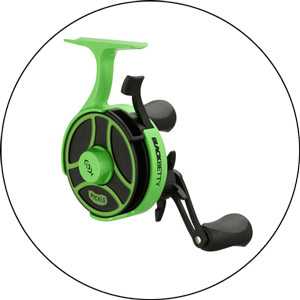
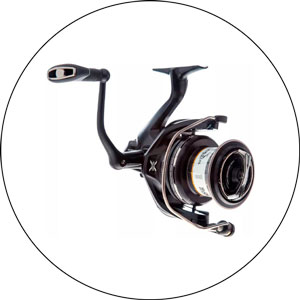
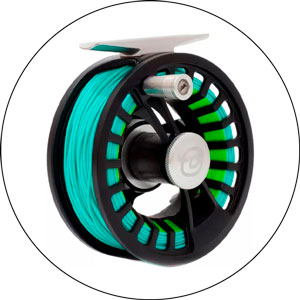
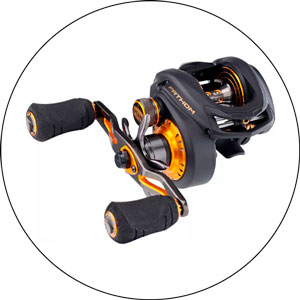

I have been following your publications on the site for a long time. The reels are suggested for a museum about fishing. All iconic and all champions. A dream for any angler. On any mountain river, you will be happy and proud of yourself with this set. Having fun fishing is the most important thing. Let’s buy famous brands.
The author’s extensive experience in fly fishing truly shows in this article. It’s one thing to understand the technicalities of a fly fishing reel, but the ability to apply that knowledge based on one’s own personal and professional experiences brings a new level of credibility to the piece.
The section about the environment and target species influencing the choice of reel resonated with me. It’s easy to forget that a reel that works wonders in freshwater might not be as effective in saltwater due to corrosion issues. The species you’re targeting matters too – a reel suitable for trout might not handle larger, more powerful fish.
Ultimately, this article reinforces the idea that there isn’t a universally ‘best’ reel – it’s about what fits your personal needs and circumstances. This is a message every angler, from the novice to the experienced, can benefit from. It’s not just about buying the most expensive reel but finding the reel that works best for you.
The emphasis on the reel’s weight was particularly striking. I recall a time when an overly heavy reel led to early fatigue, resulting in an otherwise enjoyable fishing trip being cut short. The point made about the reel needing to balance with the rod to prevent such situations was well articulated.
Having lost a memorable catch due to a less-than-adequate reel, I can testify to the importance of a reliable drag system. The author does an excellent job of highlighting the differences between the traditional click and pawl system and the more adjustable disc drag system. It’s critical knowledge for any angler.
I enjoyed the comprehensive explanation of the various factors that contribute to the ‘best’ fly fishing reel. It was a beneficial refresher for me, and it’s an invaluable resource for those who are new to this sport. The considerations of the reel’s material, weight, drag system, and retrieval rate, among others, can’t be stressed enough when choosing a fly fishing reel.
As an angler myself, I wholeheartedly agree with the sentiment that a well-chosen reel can make all the difference in the world when it comes to fly fishing. There’s a satisfying balance one feels when the reel perfectly complements the rod, enhancing both the casting process and the thrill of reeling in a catch.